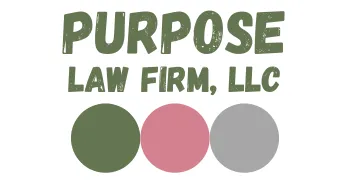Welcome to the
PURPOSE Law Firm
Blog

3 Things Trusts Can Do That Wills Can’t
"We believe that a properly designed ESTATE plan can keep your family out of Court, out of conflict, and keep your children out of the care of strangers."
Both wills and trusts are estate planning documents that can be used to pass your wealth and property to your loved ones upon your death. However, trusts come with some distinct advantages over wills that you should consider when creating your plan. That said, when comparing the two planning tools, you won’t necessarily be choosing between one or the other—most plans include both. Indeed, a will is a foundational part of every person’s estate plan, but you may want to combine your will with a living trust to avoid the blind spots inherent in plans that rely solely on a will. Here are three reasons you might want to consider adding a trust to your estate plan:
1. Avoidance of Probate
One of the primary advantages a living trust has over a will is that a living trust does not have to go through probate. During probate, the court oversees your will’s administration, ensuring your property is distributed according to your wishes, with automatic supervision to handle any disputes. Probate proceedings can drag out for months or even years, and your family will likely have to hire an attorney to represent them, which can result in costly legal fees that can drain your estate. Bottom line: If your estate plan consists of a will alone, you are guaranteeing your family will have to go to court when you die. However, if your assets are titled properly in the name of your living trust, your family could avoid court altogether. In fact, assets held in a trust pass directly to your loved ones upon your death, without the need for any court intervention whatsoever. This can save your loved ones major time, money, and stress while dealing with the aftermath of your death.
2. Privacy
Probate is not only costly and time consuming, it’s also public. Once in probate, your will becomes part of the public record. This means anyone who’s interested can see the contents of your estate, who your beneficiaries are, as well as what and how much your loved ones inherit, making them tempting targets for fraud and scammers. By using a living trust, the distribution of your assets can happen privately. The only instance in which your trust would become open to the public is if someone challenges the document in court.
3. Enhanced Control Over Asset Distribution
Another advantage a trust has over just having a will is the level of control they offer you when it comes to distributing assets to your heirs. By using a trust, you can specify when and how your heirs will receive your assets after your death. For example, you could stipulate in the trust’s terms that the assets can only be distributed upon certain life events, such as the completion of college or purchase of a home. Or you might spread out distribution of assets over your beneficiary’s lifetime, releasing a percentage of the assets at different ages or life stages. In this way, you can help prevent your beneficiaries from blowing through their inheritance all at once and offer incentives for them to demonstrate responsible behavior.
Consider adding a Trust to your ESTATE plan to avoid the probate process, ensure your privacy and enhance your control over asset distribution. At PURPOSE Law Firm, we don’t just draft documents; we ensure you make informed and empowered decisions about life and death, for yourself and the people you love. We believe that a properly designed ESTATE plan can keep your family out of Court, out of conflict, and keep your children out of the care of strangers.
207 Mechanic Street, Aurora, Indiana 47001 - 812-655-9336 - [email protected]
© Copyright 2024 Purpose Law Firm, LLC - Privacy Policy - Website Terms - Courses Terms - Statement of Faith


Facebook
LinkedIn
Youtube